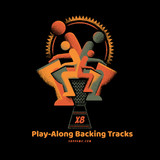Recovering Memory and Speech of Stroke Patients with Music Therapy
Music therapy is used widely for rehabilitation of patients that have had a severe stroke. A study out of Finland reported that incorporating music into standard stroke rehabilitation treatments helps improve recovery of speech and memory. The music had a more significant impact on recovery than the use of audio books or no additional stimuli at all. The study also showed that the music lightened the spirits of patients as well.
After six months of therapy, the music listeners' verbal memory improved by 60% and focused attention improved by 17%, much higher than the results noted in audio book listeners or patients with nothing. Furthermore, the music listeners were happier and less confused than members of the other groups. The research was carried out on adults who had suffered an ischaemic middle cerebral artery stroke with no prior history of neurological disorder.
Strokes occur when blood is unable to reach the brain, killing brain tissues.
This can cause disability in movement and cognition, as well as death.
Medical treatment includes medication to thin the blood that will prevent further clotting, and restrictions on the patient's diet will help to improve cholesterol levels. The stroke even causes weakness, loss of coordination, and pain. The aftermath of the event includes memory loss, confusion, depression, difficulty speaking, paralysis, and sensory loss.
While listening to music, the brain boosts alertness, mood and attention due to stimulation of the dopaminergic mesocorticolimbic system, which moderates feelings of pleasure and memory, among other emotions.
By stimulating this system, you trigger the wires for other parts of the brain through a neurological crossing effect. Doctors believe that the combination of music and lyrics leads to this cross over effect, which helps to recover losses in other parts of the brain.
Many therapists already use music as a tool. Singing songs can boost speech recovery in stroke patients. By putting words to a familiar song melody, the patient has an easier time of forming words and phrases. Rhythm and clapping, also used by therapists, aid in the recovery of movement and muscle control.
After a stroke, it's important to begin music therapy early, during the acute post-stroke stage. During this period, the brain undergoes many changes that relate to movement, memory and speech that can be augmented by stimulation. The largest benefit of musical therapy is that it fits in well with every day life. Music is everywhere, so with proper guidance you can treat yourself or your loved ones outside of the hospital, maintaining ongoing recovery and a routine of incorporating healthy brain stimulation.
Music can be a worthwhile therapeutic addition to a stroke patient's care, and is cheap and easy to provide. Patients may also respond to live performance music or by playing on simple instruments themselves. Experiment with recorded music, live music and present the patient with an instrument like a small djembe or shaker.
When selecting the type of music, choose something that is familiar to the patient. Playing something that they recognize will improve results of the therapy and improve memory development. Interesting enough, this study of music therapy on stroke patients showed that songs by Kenny Rogers delivered the most significant response from the patients. However, you should allow the patient to choose the music him or herself, or use music that you know the patient likes, as the familiarity of the music is frequently the key to memory retention. Selecting the type of music that stimulates the brain to craft thoughts is the technique used in music therapy to recover speech and recollection.
http://www.flickr.com/photos/mrnews1320/CC BY-NC-ND 2.0
Recent Posts
-
X8 Drums Play-Along Backing Tracks
The new X8 Play-Along Series is being produced for our musician friends wanting a fresh way to work …9th Feb 2025 -
What is the Best Size Djembe for Beginners?
If you're new to the world of percussion and interested in learning the djembe, you're in for a t …16th Jul 2024 -
The Benefits of Becoming a Drumming Teacher: Transforming Passion into Profession
Why become a drumming teacher? Becoming a drumming teacher is an excellent way to share your pas …22nd May 2024



